As of 2018, there are over 3.1 billion active social media users globally.
These networks have become a normal part of not only our daily lives but businesses, too. They serve as an effective way to drive traffic, generate sales, and expand brand awareness.
But, it has to be used carefully. With the internet being so active, a business can quickly lose customers or worse by doing the wrong things on social networks.
How can you avoid this? By developing a social media policy for employees.
More than a quarter of businesses don’t have one in place. Are you one of them?
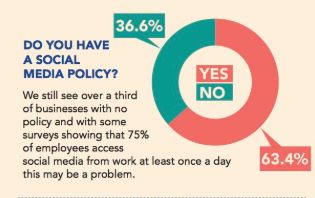
It is a compilation of rules, regulations, and roles that will streamline how your business uses these platforms. Policies also guide employees in the right direction and prevent them from misusing it.
Today I’ll be showing you how to write a social media policy for business, what the benefits are, and how to implement it successfully.
Benefits of a social media policy
Social media guidelines do much more than serving as rules for you and your employees. It can never be too late to create one and begin reaping the benefits.
The first of which is that it improves security and reduces legal risks. Copyright and privacy are rampant issues on social media. The last thing you want is your heart to drop when you find a cease and desist letter in your mailbox.
Copyright infringement is so serious that Google receives upwards to 2 million removal requests every week.
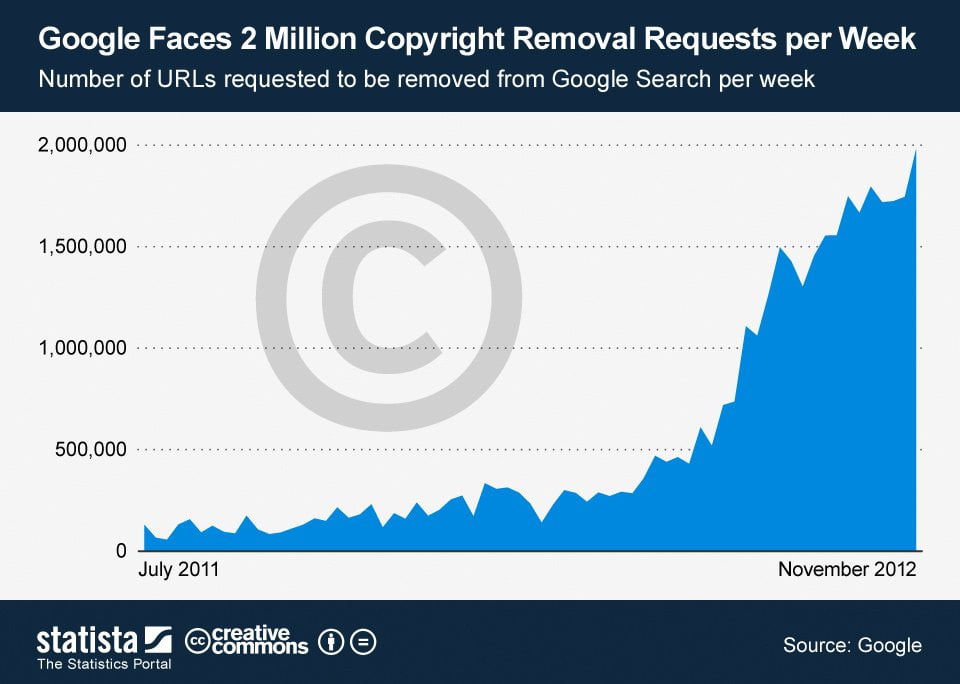
This applies both to you as a business owner and your employees. Their actions can get you in trouble if you don’t have a social media policy in place.
Regarding security, members of your company could potentially leak confidential or proprietary information by accident if there aren’t rules in place to prevent it.
A policy sets what can and what can’t be disclosed about your business operations on social networks. As well, it can state how to source other content and stop copyright infringements.
Secondly, having a social media policy promotes employees to be outspoken on these networks about the business. Most of them will most likely have a Facebook or Twitter account, which could even be made mandatory if you wish.
Leads generated through an employee convert up to 7 times more, meaning it’s profitable to have your company on social media.
Lastly, social media policy creates consistency.
Humans like when things are predictable. By having rules and regulations in place, all of your channels use the same voice and image. It will feel more familiar to your customers and makes it easier to find you on other platforms.
Let’s take Neil Patel for example.
Here is his Twitter account.

Now, here is his Facebook page.
Notice that he uses the exact same profile picture to create consistency. If you navigate through his social media pages, you’ll also see that he shares similar content.

His fans won’t go between his accounts and be confused if they’re following the right person or not.
Aim to achieve a similar level of uniformity like Neil.
Rules and regulations
Now that you understand why you need a social media policy in the workplace, it’s time to draft one.
Lawyers Mutual put together this great infographic on developing and implementing a social media policy. While geared towards lawyers specifically, you can still apply ti to any business or market.
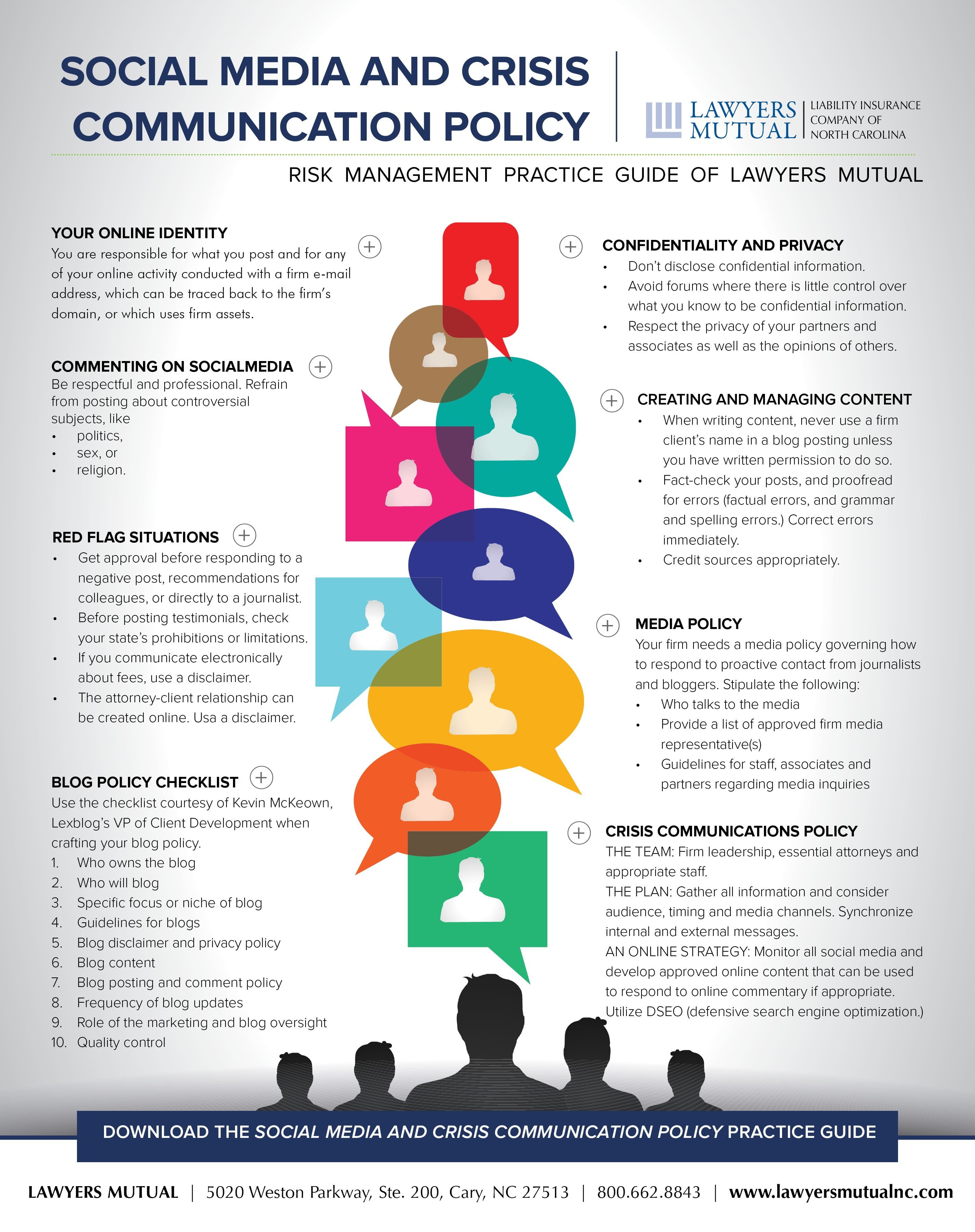
Begin with a section over-viewing what you expect of your employee’s behaviour when on social media. Rules and regulation might include:
Confidentiality
What can they not mention while interacting with customers and other brands on social networks?
Marketing strategies, target demographics, and other private information are examples of such information. This is to keep competition from gaining an advantage by learning how you conduct business.
Etiquette
Your customer service is a part of your product.
33% of Americans say they will switch to another companies service due to poor customer service. So, it should be a high priority in your policy to outline general etiquette and manners.
Swearing, speaking rudely, and negativity of all sorts should be avoided. You want your brand to have a positive image, even if a customer is upset or you’re being berated.
Branding
What tone of voice do you want your employees to use? Positive and casual? Or serious and informative? This will depend on your exact product and target audience but outline it so they have an idea of how to conduct themselves.
Consequence
If an employee or another company member is to break these rules, there should be consequences in place. Depending on the severity, this could be anything from suspension on social media to job termination.
Roles and responsibilities
While having a policy in place will definitely prevent negative behaviour and promote best practices, it’s ideal to give company members specific social media roles.
Your reputation is key to developing loyal customers and having a clean image. And seeing as 83% of businesses will have some form of crisis to manage eventually, you need to be prepared.
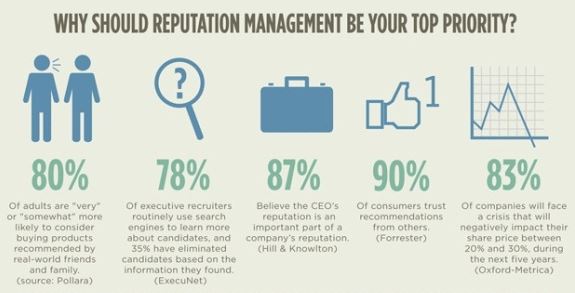
These will all have different responsibilities that work together to make the most out of your social networking goals.
You may have people in charge of:
- Approving content or messages
- Engaging with customers and other brands
- Marketing and growth
- Handling backlash or crises
- Security
This creates a system where only appropriate content gets published, your accounts sustainability grows, and you’re able to grow relationships with customers.
Legal and security concerns
There are various legal and security risks when a large team uses social media. Adding best practices to minimize risk will benefit your company as a whole.
Do you know what the most common legal threats are on social media? Their quite obvious but at the same time, you’d be surprised how many companies face them still.
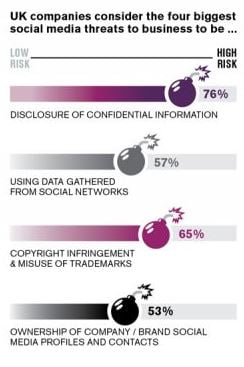
These are some areas you may want to develop policies around:
- Account information: Employees should keep their passwords and sensitive information safe by not sharing it. Otherwise, you run the risk of someone outside of the business gaining access to private information.
- Proper crediting: Trademarks and copyrights are serious legal areas that need to be noted. When using a 3rd parties photo or quote, it must always be given appropriate credit.
- Crisis response: In the case of an emergency, having a dedicated team can solve a lot of headaches. Create a plan on how to respond to compromised accounts or security breaches. If this isn’t your expertise, speak with experienced employees or outside consultants to develop a strategy.
How to implement a social media policy
After you plan and craft your social media policy, eventually you will need to implement it within your business.
The best thing you can do is seek input and critique from employees.
Employees that are happy have been proven to be up to 20% more productive than unhappy workers.
A social media policy affects them directly, so it’s only fair to listen to their questions and concerns. Expect it to be ongoing as team members discover better ways to improve it or propose changes.
Similarly, you want your social media policy to be lean and flexible. There are always trends and opportunities present in business with social media being no different.
Over time, new networks might be available that you’ll want your employees to be a part of. Or, you may want to execute different strategies. Don’t be too rigid and be open to adjustments from employees or other departments.
Have the policies available as both a PDF and on physical paper. A PDF can be conveniently emailed to all of your company members and if requested, you have the paper version to offer.
Examples of social media policies
Now that you know how to write a social media policy and the importance of it, let’s look at some examples.
Bestbuy
With over $42 billion in revenue, Bestbuy has a lot to lose if they were to mismanage their social media. This is why they are a great company to look up to and their social media policy reflects that. There’s a lot we can learn from theirs, such as:
- Keeping it short and simple. Their policies aren’t complicated and are easy to read. This makes it much easier to follow.
- It states exactly what employees should and shouldn’t do.
- Realistically mentions what could happen to both Bestbuy and employees if these policies are broken.
- Linking to other relevant policies as supporting documents.
HP
Hewlett Packard is one of the biggest and most successful tech companies globally. Similar to social media, they developed a blogging policy that directly relates to social networking. Here are some main points to apply to your own policies:
- They promote respect for their audience.
- Intellectual property rights are a high priority.
- Inaccurate information or headlines are corrected quickly.
Los Angeles Times
As one of the world’s most popular print publications, the Los Angeles Times understands the importance of professional conduct on social media. They’ve created a thorough policy, with some of the main highlights being:
- Avoid mixing personal political opinions or bias into the content.
- Integrity is the biggest focus.
- Writers they hire must identify themselves as a part of the company
The bottomline on writing social media policies
Any business that is serious about their brand image needs a social media policy. You’re already on a few platforms and if you have employees, this only becomes more crucial.
It’s better to be safe than sorry and that’s exactly what having a policy is all about. It prevents issues like copyright infringement, poor behaviour, and security risks.
Your brand will have a consistent image on all channels and leads generated through employees are proven to convert more.
Instead of scaring employees out of using social media at work, a good policy promotes productive use of it, too.
Consider the missions and values of your business while writing yours. This will influence sections like responsibilities, consequences, and etiquette.
Make it available in various forms, such as PDF and physical paper. Get employee feedback and be open to their ideas, as well.
What are you waiting for? Contact me if you need a content writer to produce a policy on your behalf.














